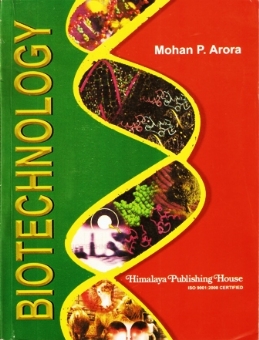Biotechnology
no information available
Biotechnology, an enabling technology, is the growing and most rapidly changing subject which has created a number of new opportunities for the upliftment of human society. It has a broad applications in many diverse aspects of basic research, industry, and commerce. It is a broad field that employs an industrial technology based on the biological synthesis of important chemical compounds, especially proteins (insulin), genetic engineering of plants and animals, and other, related technologies. It also manipulates the genetic information of an organism to allow the characteristics of that organism. The basic process consists of inserting foreign DNA carrying instructions for a valuable enzyme, hormone, or other protein into the DNA of some other organism so that the host organism makes the desired products at the same time as it makes its own proteins. With increasing knowledge of the control of gene activity, as well as new methods to insert genes into eukaryotic cells, it is possible to genetically transform the complex organisms. Genetic information has been especially successful in agriculture, and in beginning at human gene therapy has been made. Some observers feel that biotechnology promises a revolution beyond the scale of that generated by the computer. Certainly, the potential seems unlimited. Contents : 1. Introduction 2. Cell Organisation 3. Chromosomes 4. Nucleic Acid 5. Biological Replication 6. Enzymes of DNA Synthesis 7. Ribonucleic Acid (RNA) 8. RNA Biosynthesis 9. Protein Synthesis 10. Genetic Code 11. Nature of the Genetic Material 12. Concept of Gene 13. Gene Expression 14. Gene Action and Related Diseases 15. Genetic Engineering 16. Transgenic Organisms 17. DNA Cloning and Fingerprints 18. Genetic Screening 19. Genetic Counselling 20. Gene Therapy 21. Reproductive Technology 22. Genetics of Immunity 23. Protein Engineering 24. Vaccine Biotechnology 25. Plant Biotechnology Glossary ... Read more Read less











